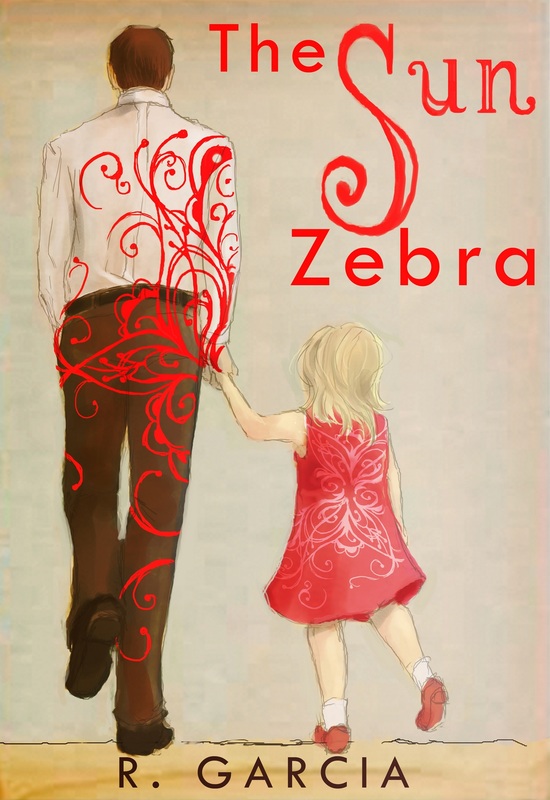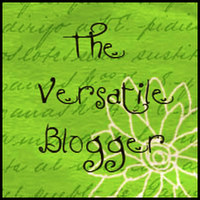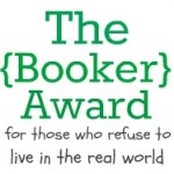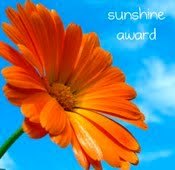|
This is a funny short film by CleanShort.tv and Big Sherpa Film Co. I love the message at the end!
2 Comments
Author Kristen Lamb wrote a great post on her website entitled: How Self-Publishing has Helped All Writers–Welcome to the Revolution. You can click on the link to read it, but what caught my attention was a particular section where she discusses how many writers linger forever making their book more and more perfect, and how the self-publishing revolution is teaching writers that they should “let go.” She writes:
“One of the largest barriers to becoming a successful writer is trying to be a perfect writer.” This is something that rang a bell with me because it is a thought I have been trying to convey in many of my posts. The plain and simple truth of self-publishing is that the vast majority of books will not be a success: at best they will have modest sales. Therefore, if your goal is to actually sell books, spending years and years writing one will just not cut it. The only business paradigm that makes sense in self-publishing for the average author is to build the “long tail.” What is that? The long tail is the concept that you can derive a substantial amount of profit from selling items that don’t sell much as long as you sell enough of them. Imagine that you write two books a year (and nowadays many people will tell you that anything less than that is “slacking”). In five years you will have accumulated 10 books. If each book sells say 40 copies a year, then your ten books are selling a combined 400 copies per year. On the other hand if you write one book every 5 years and it also sells 40 copies a year… get my drift? Another thing to remember is that the success of a book does not depend only on how good it is. Rewriting a book over and over to make it better will not necessarily make it sell more. The success of a book is part art and part voodoo. Nobody has a formula that works reliably. The reality, again, is that most books will not “catch on” and sell like hotcakes no matter how well written they are. Of course we hope that every now and then we will write a book that sells exceptionally well, and having this hope is fine. But the chances that this will happen will be increased if you write a large number of books. Finally there are two more considerations. The first one is that each book that you write counts as advertisement that will make you better known among potential readers. The second is that if the tenth book you write hits the big time, your readers will want to read more. Having nine more books on your shelf for them to buy is a great advantage. On the other hand if you only have that one book you will have, as the surfers say, “missed the wave.” So put all of the above together and what do we have? Self-publishing favors the prolific writer. And this goes back to what Kristen wrote. You are doing yourself a disservice by trying to be perfect. Yes you read that correctly. The important thing is for you is to put out those books. Do not, of course, interpret this as a license to be sloppy. Clearly your writing needs to have a certain level of competence, but the take home message is: don’t let perfection slow you down. This is even more justifiable if you publish e-books, which can easily be modified (in case a reader points out a mistake) and republished in no time at all. For many the above is not easy. I myself tend to be one of those “perfectionists.” I get really annoyed when someone finds a mistake I missed. Couple this with the fact that I don’t write very fast and that I don’t have a lot of time for writing, and you see how this is a problem for me. But I am trying my best to be more imperfect because it’s the road to success! Are you imperfect or trying your darnest to be imperfect? Please leave a comment and let us know. *** If you like this blog you can have links to each week's posts delivered to your e-mail address. Please click here. Traditionally published author Shannon Hale wrote a post on her blog where she stated the following.
“I suffered the years of rejections. I was told again and again that I was not good enough, my stories were not good enough, my book was not good enough. Most published writers I know suffered through a similar process. For good or ill, it's survival of the fittest, and many writers give up too soon. The yearning to share creative works is natural and fierce. Here's my unrequested advice: Writers, you just keep going. You keep trying. You keep improving. You fight for that right to be vetted, edited, and published professionally. You fight for it. Sometimes it takes years to find the right house, the right editor, the right manuscript, but you do it and your book will be better for it.” I don’t get this. About 1% of all new authors vying for a publisher gets signed up every year, and of those 10% do well enough to be considered successful (0.01% of the total). Also getting published traditionally means signing up the rights to your books for life, earning meager royalties in exchange for ever-shrinking advances, and zero control over how your books are published. And this typically happens only (if ever) after years and years of the so called “query go round.” Authors are supposed to “fight” for their right to endure this torture? Also what does “vetted, edited, and published professionally” mean? If you self-publish you can hire professionals who will edit and format your books. But what about “vetted,” what is it to be vetted? Ideally it means that somebody decides whether what you write is good enough to be published. But there are two problems with that. The first is that your book may get rejected, not because it’s not good, but because the publisher doesn’t think it will sell. The second problem is that agents, editors, and publishers are not competent at deciding whether a book is good. Shannon mentions the saga of her children’s book “The Goose Girl.” She writes: “The goose girl, was rejected (unread) by dozens of agents, then after I found an agent…it was again rejected nine times by the who's who of children's publishers.” Finally she got an editor who loved the book, which was published, won awards, and is still in print. She posts some of her rejection letters and calls these editors “well-meaning (but obviously misguided!).” So this is my point: The majority of the people in the publishing business fit this description. They are “misguided.” These are the people to whom an author is supposed to send his/her book in the hope of finding the oddball who will love it? I sympathize with Shannon and I am glad she has found her niche and is happy. But for every writer like her there are scores of very talented writers who are not making it and due to simple numbers (0.01% of the total) will never make it. I would not wish what she went through on anyone. She writes: “Oh, the days when you looked for the positive in a rejection--at least they bothered to send a letter! At least they seemed to read it at all! At least they said something sort of nice! (Oh, the pain, the pain!)” Is this really necessary? Fight for your “right” to go through this? No wonder some writers stop writing altogether while others even kill themselves! Self-publishing is not the Holy Grail to riches but at least you don’t have to deal with this stuff. With self-publishing you are in control, and the only one who will decide whether you are good enough is that person who is ideally suited for this: the reader And this is all that matters in the end. *** If you like this blog you can have links to each week's posts delivered to your e-mail address. Please click here. I want to address an interesting phenomenon I’ve encountered in my experience with Amazon’s KDP Select Program. As many of you know, if an author enrolls their book in this program, in exchange for exclusivity they get to give away their book for free for 5 days. And this has been a great promotional tool. Additionally, any book enrolled in the program is included in the Amazon Prime library where it can be borrowed by readers participating in the program. Amazon has allocated a pool of money to the program ($600,000 to $700,000), and this money is divided by the total number of borrows that take place within a given amount of time. Based on this ratio, Amazon then pays their KDP Select authors a certain amount of money per borrow.
A reader who joins the Amazon Prime program pays $79 a year and is limited to borrowing one book from the Prime library per month. I remember that when this program got started many people argued that the program would not benefit authors who sold their books at low prices. The reason being that for that $79 investment to make sense, a reader would have to borrow 12 books a year each costing (79/12) $6.58 just to break even. Therefore, it was argued, Amazon Prime members would only borrow the more expensive books. This has proven to be false. Many authors selling books at prices lower than $6.58 have reported a substantial number of borrows for their books. So far Amazon has been paying $2.30 to $2.50 for each borrowed book. If you are an author selling your book for $2.99, Amazon gives you a 70% royalty, which means you earn about $2.00 per sale. But if your book is borrowed, you actually end up earning more ($2.30 to $2.50, instead of just $2.00). What is not clear is the situation with books that are priced even lower. Here is where I want to share my experience. My book The Sun Zebra is priced at $1.99. Out of every sale I make Amazon gives me a 35% royalty, which means I earn $0.70 per book sold. If my book were to be borrowed that would be a great thing. For me to earn $2.5-$2.3 per borrow is equivalent to selling 3.6 to 3.3 copies! But who would use their allocated monthly borrow on my book that costs $1.99 when they are paying $6.58 a month to belong to the Amazon Prime Program? The answer is: many people. I did my last free promotion from April 11 to April 13 of this year. So far about 45% of the income I’ve earned from this promotion alone comes from borrowed books! So why is this? I think that participants in the Prime program feel they are getting the return on their $79 investment from other things. If you belong to this program, among other perks you also get free two day shipping of Amazon Prime items you buy plus unlimited instant streaming of thousands of movies and TV shows that are available on Amazon (this is cheaper than Netflix which charges $8 per month). This is why I believe Amazon Prime participants have no qualms in using their monthly borrow on lower-priced books. But what about books that are priced even lower? I have anecdotal evidence from other authors reporting that their books priced at $0.99 are being borrowed. This is huge as in terms of royalties each borrow yields an income equivalent to the sale of 6.6 to 7.2 books. Unfortunately I haven’t found any hard numbers regarding this matter. Ideally I would like to know what percentage of royalties do borrows account for at different price points. Do Amazon Prime participants indeed borrow more of the higher priced books, or does price not affect their borrowing rate? Please leave a comment if you have any information about this or if you want to share your experience regarding borrows. I recently read an amazing article by Alexandra Alter in the Wall Street Journal. Its title is “Your E-Book is Reading You.” In a nutshell, she writes about something that many of us don’t consider when we read an e-book. It used to be that reading was a private act. How the reader read a book was an event far removed from the prying eyes of publishers, retailers, distributors, and even authors. Well, not anymore. E-readers and apps for devices like tablets are recording how we read and generating massive amounts of data that companies are mining for crucial nuggets of information.
Think of that e-book you read last week. Did you read it all in one sitting? Did you jump ahead to the juicy stuff? Did you search for key words? Did you read it more than once? Did you highlight any passages or read them over several times? Well, all this was recorded in the bowels of a computer somewhere, and while you are reading this blog it may well be being analyzed by someone who wants to understand reader behavior in order to improve marketing and promotional strategies. Many will feel alarmed at this sort of intrusion, and certainly this is an argument in favor of only reading print books. But this does offer a great opportunity for authors. Think about it. When you log into your author page and you see someone has bought your book, have you ever asked yourself what that person did with your book? Did they read it at all? Did they quit halfway through it? Did they reread certain sections several times? Did they highlight certain passages or search for certain words? All this information could be made available to you along with the software to analyze it. That way you could change your writing to better please your readers. I am constantly amazed by how fast things are moving along in this wild new frontier of e-publishing. I hope these changes will result in a better future, but I am troubled by some of the possible implications. Is Big Brother watching us? *** If you like this blog you can have links to each week's posts delivered to your e-mail address. Please click here. |
I am a tinker, tailor, BlogrollLaura Novak
Barbara Alfaro Suzanne Rosenwasser Sunny Lockwood Christine Macdonald Jennie Rosenbaum Kristen Lamb Joe Konrath Sweepy Jean Ingrid Ricks The Jotter Robert David MacNeil Molly Greene The Passive Voice Third Sunday Blog Carnival Marilou George Laura Zera Jeri Walker-Bickett Lia London Categories
All
Archives
April 2020
|


 RSS Feed
RSS Feed



